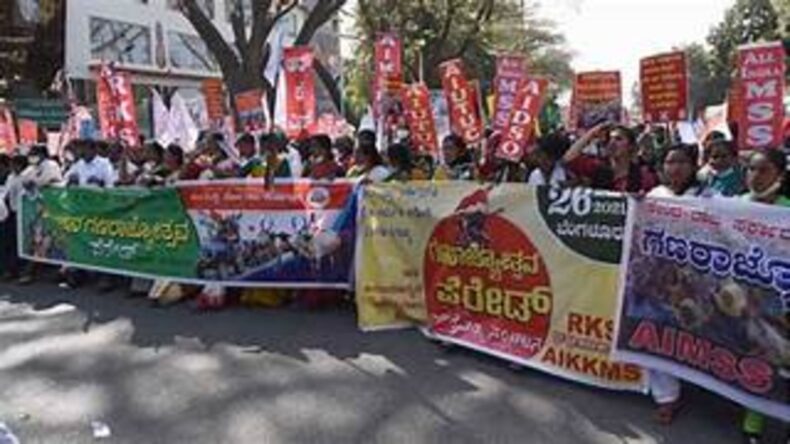Bengaluru, once known for its vast agricultural lands, is now a bustling metropolis. However, in the context of urban development and modernization, the age-old problem of land acquisition and compensation for farmers continues to exist. Recently, a controversial topic has emerged as farmers in Bengaluru oppose compensation for their land based on laws from the British era. This article examines the historical context of the law, farmers’ grievances, and the implications of continued use of the law in modern times.
The controversial law in question is the Land Acquisition Act of 1894, a provision left over from colonial times when the British needed to acquire land for various infrastructure projects. The law allows the government to forcibly expropriate land from private owners for public purposes, with compensation calculated at the market value of the land for the period. This compensation system is designed to benefit the government, leaving farmers often under-compensated for their land.

As the city has grown over the years, much farmland has been acquired for urban development projects. The enforcement of the ancient land acquisition law is a major point of contention for farmers in Bengaluru, who argue that the compensation offered does not reflect the true value of their land in the current context.
Over time, land prices skyrocketed due to urbanization and population growth, making the compensation not enough to support farmers’ livelihoods. Farmers said the British law did not take into account many different aspects, such as soil fertility, future agricultural potential and non-farm uses that could result in higher prices. They argue that land formerly used for agriculture is now valuable for commercial or residential development and, therefore, compensation should reflect current market value rather than historical value.
Farmers in Bangalore have been expressing their concerns and trying to remedy them for years. They are demanding an updated land acquisition policy that takes into account current market conditions and ensures fair compensation for their valuable farmland. This outdated law has left many farmers in dire straits, struggling to cope with the rapid urbanization that has encroached on their livelihoods.
The responsibility for solving this problem rests with the government and developers involved in urban expansion projects. While it is essential to adjust urban development to meet the growing needs of the city, it is equally important to protect the interests of the farmers who have managed the land over the years. generations. A cooperative approach that takes farmers’ concerns into account and ensures fair remuneration can promote more sustainable and harmonious development.
Bengaluru farmers’ opposition to compensation based on UK land acquisition laws highlights the need for an up-to-date and equitable approach to land acquisition in the city. Modernizing the compensation system and promoting collaborative dialogue among stakeholders can help strike a balance between urban development and agricultural conservation. It is essential to recognize the rights of farmers and ensure that they receive fair compensation for their land that reflects its value in a contemporary context. By approaching this issue with sensitivity and responsibility, Bangalore can develop into a city that harmoniously balances progress with the preservation of its agricultural heritage.












